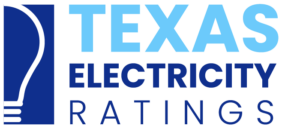In a series of articles, I want to take a look at American Electric Power’s (AEP) court hearing regarding their application to become a Retail Electricity Provider (REP), similar to Reliant, TXU, Gexa, or Bounce. The interesting thing about their application is that AEP is currently a Transmission and Distribution Utility (TDU) for 2 regions of Texas. This is interesting because all TDU’s like Centerpoint, Oncor and AEP were forced to split from their REP businesses as a part of deregulation in 2002. Consequently, this hearing is big news and could have a huge impact on the entire Texas electricity landscape.
Understanding the Basics
To start, lets take a quick look at the intent of the rules put in place by the PUC when deregulation was first enacted. In section 25.342 of PURA (Public Utility Regulatory Act), the general purpose of the separation of TDU’s (Transmission and Distribution Utilities) and REP’s is laid out as follows:
The commission seeks to prohibit practices between regulated and
competitive activities that may unreasonably restrict, impair, or reduce the level of competition during the transitional separation of personnel, information flow, functions, and operations, and after a competitive market is established
In short, the intention of the rules are to prevent a competitive advantage in the deregulated areas of the Texas electricity market. Companies like Centerpoint and AEP who operate transmission utilities and have access to valuable customer information as well as an established brand shouldn’t be allowed to sell electricity. This separation is the reason that a deregulated electricity market can function and succeed. It is why in 2002 Reliant spun off Centerpoint and TXU spun off Oncor. AEP sold Central Power & Light and West Texas Utilities, which were their retail electricity business units, to Direct Energy. If the PUC hadn’t forced companies to separate their retail and transmission businesses then creating a fair deregulated market would have been impossible.
AEP Texas & Retail Electricity in Texas
When PURA went into effect in 2002, AEP opted to sell their retail electricity interests outright and concentrate on their power generation and transmission businesses. Now, nine years later, AEP Texas has filed an application with the PUC to become a certified retail electricity provider. And surprisingly, AEP has been granted a hearing that will determine whether or not they will be certified to sell electricity to all mass market customers in Texas. As I write this, parties are giving testimony in the hearing and a decision will be made sometime in early 2012. If their motion fails, AEP will still have the right to appeal in another court.
How is this even possible? As previously mentioned, deregulation forced the separation of retail and transmission energy companies in 2002 and AEP was forced to sell their retail interests. How can they now be allowed to start a new retail company using the AEP name?
The short answer, unsurprisingly, is legalese. The company seeking a PUC license is a subsidiary of parent company AEP, registered as AEP Texas Commercial & Industrial Retail Limited Partnership. The two separate companies that operate the transmission and distribution services, commonly referred to as AEP or AEP Texas in this article, are officially known as AEP Texas North and AEP Texas Central, respectively. In the eyes of the law, these are all three separate and independent companies.
Of course, there is some precedent in this situation. Oncor, the TDU for the Dallas and Ft. Worth area, and retail electricity provider TXU operate as two individual entities under parent company Energy Future Holdings. But this isn’t quite the same situation at all. The split of Oncor and TXU was carefully handled with massive PUC oversight in 2002 to ensure the two companies were truly separate. Oncor operates completely independently without any management from Energy Future Holdings. Additionally, great pains were made to separate TXU and Oncor with very different names and separate branding. And over time, Oncor has taken on separate minority ownership and board members from their parent company to even further the separation. AEP is simply coming along almost a decade later, starting a new subsidiary, and saying they’d also like to sell retail electricity to everyone in the deregulated areas of Texas-despite the fact they also operate two TDUs. The kicker is that they’d like to do it under the AEP name or some variation of the highly recognized AEP brand. But more on branding and marketing later.
These are just the basic facts surrounding the AEP case in regards to their intentions, the complications, and how it relates to the rules and boundaries set up by the initial laws put in place during deregulation in 2002. In the next section I will examine the details of AEP’s application and the issues surrounding their efforts to sell deregulated electricity in Texas .
